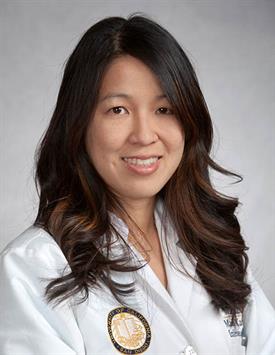A new clinical trial designed by Maile Young Karris, MD, internal medicine physician and infectious disease specialist at UC San Diego Health, seeks to discover whether people living with HIV can benefit from emotional support offered by a virtual community, and from physical support and services delivered by community volunteers.
According to a study of 356 patients with HIV, published in the journal AIDS and Behavior in November 2017, 58 percent reported symptoms of loneliness, which has been associated with functional decline and increased mortality risk.
Karris’ “2nd AC+: New Village Model,” funded by a $750,000 grant from Gilead Sciences, will connect participants within a secure online community that can arrange for lifts to the grocery store, tech support for a home computer or just a friendly face to talk to on a screen. Delayed by COVID-19, the three-year trial is currently recruiting participants.
“It’s about changing the culture back to how it used to be,” Karris said, “where neighbors actually knew each other and helped each other and you didn’t have to worry so much about your poor dad who lives by himself, far away from you, because you knew that his neighbors would call you if anything happened or would make sure that he was eating.”
Karris first became aware of loneliness among seniors with HIV in 2018, when she noticed a growing number of her patients asking to see her monthly. This puzzled her because medical advances meant most patients required just a couple of clinical visits per year.
“A lot of these patients were pretty adamant and I couldn’t really understand why,” she said.
Then one patient offered a revelatory explanation: “He told me that when he sits at home alone, he feels like he’s just waiting to die. And when he comes to clinic, he said he feels like there’s someone who actually cares that he is alive.”
Persons with HIV in their 50s and 60s are less likely to have a partner to share their lives with, or even a lifelong friend to call, than persons without HIV, said Karris, because having contracted the disease in the 1980s and 1990s means many of their friends or family members may have already passed away.
Though the 2nd AC+ trial will primarily operate in a virtual setting, all participants must reside within reasonable driving distance of each other. Karris chose Central San Diego for its diversity, its history in dealing with the HIV/AIDS crisis and its proximity to the San Diego LGBT Community Center, which is partnering with Karris to administer the study because of its extensive resource knowledge, commitment and existing senior program.
The trail will focus primarily on people living with HIV, Karris said it welcomes anyone who feels unsafe or lonely living on their own, or who desires to give back or be generous to their community.
Interested persons age 50 and older who live in or near Central San Diego can learn more at 2nd AC+ San Diego Village.

